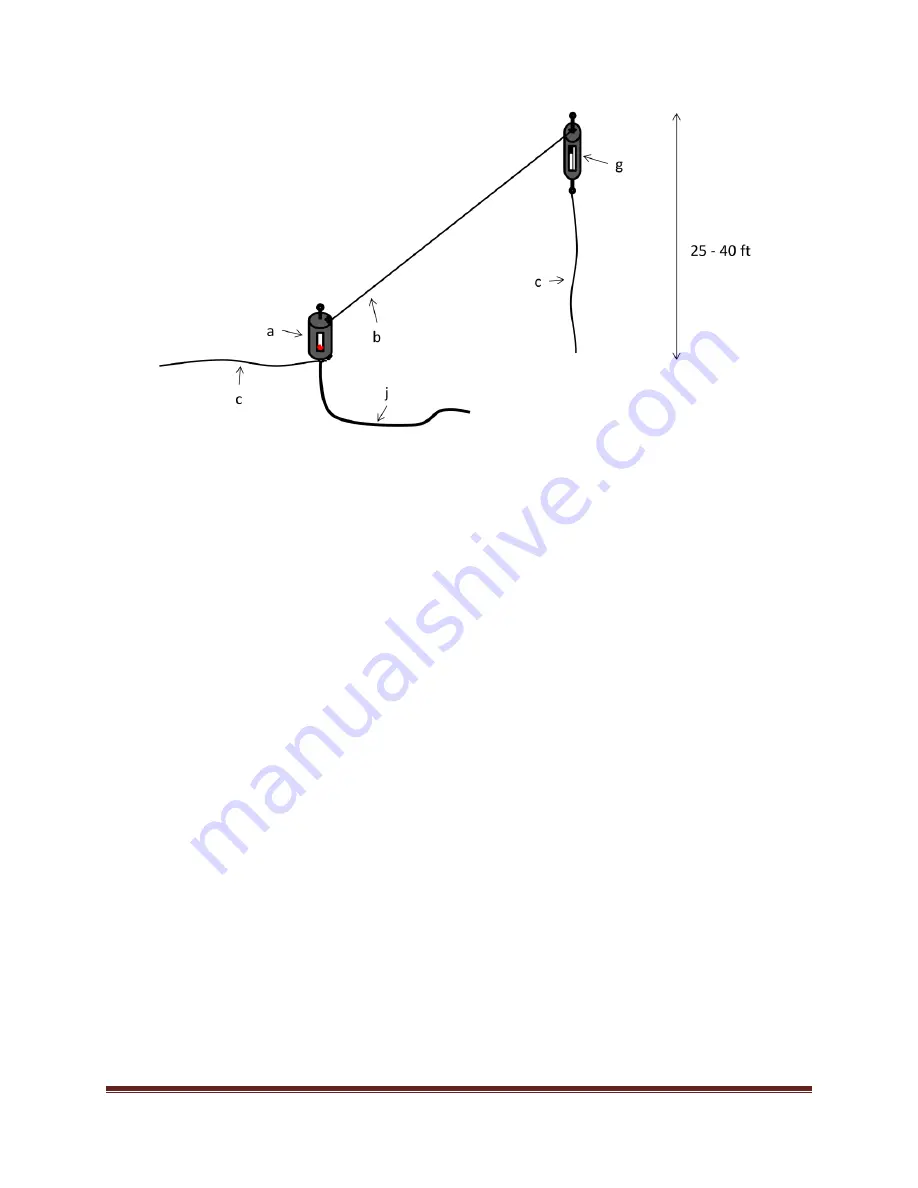
CHA TD
Page 13
Figure 5. Sloping Wire Configuration.
Connect the Matching Transformer. Refer to figure
(2) for steps (5)
–
(10).
5.
Connect the Carabiner from the Counterpoise
Wire to the Transformer Eyebolt (n).
6.
Connect the Wire Connector (r) from the
Counterpoise Wire to the Bottom Transformer
Connection (m). Tighten the wing nut finger
tight.
7.
Connect the Carabiner from one end of the
Antenna Wire to the Carabiner from step (5).
8.
Connect the Wire Connector from the Antenna
Wire to the Top Transformer Connection (l).
Tighten the wing nut finger tight.
9.
Using a Bowline of similar knot, tie one end of
short length (around four feet) of Paracord to
the Carabiner connected in step (5).
10.
Connect the UHF Plug (o) from one end of the
Coaxial Cable to the UHF Socket (k) on the
Matching Transformer.
Connect the Terminating Resistor. Refer to figure (3)
for steps (11)
–
(14).
11.
Connect the Carabiner from the unconnected
end of the Antenna Wire to the Resistor Eyebolt
(q) of the Termination Resistor (g).
12.
Connect the Wire Connector from the Antenna
Wire to the Resistor Connection (p) of the
Termination Resistor. Tighten the wing nut
finger tight.
13.
Connect the Carabiner from the Counterpoise
Wire to the other end of the Termination
Resistor.
14.
Connect the Wire Connector from the
Counterpoise Wire to the Resistor Connection of
the Termination Resistor. Tighten the wing nut
finger tight.
15.
Using a Bowline or similar knot, tie one end of
the Paracord to the Carabiner from step (11).
Raise the Antenna.
16.
Using a throw weight or some other method
loop the Paracord over the support.
17.
Raise the end of Sloping Wire antenna to the
desired height and secure the Paracord to the
support using a Round Turn and two Half
Hitches or similar knot.
Extend the Antenna Wire and Counterpoise Wire.
18.
Fully extend the Antenna Wire.
19.
Drive a Stake around two feet beyond the end
of the Antenna Wire.
20.
Using two Half Hitches, tie the short length of
Paracord from the Matching Transformer to the
Stake, such that the Antenna Wire is not quite
taut.
21.
Extend the Counterpoise Wire that is attached
to the Matching Transformer along the ground
in any convenient direction.
22.
Perform operational test.










































